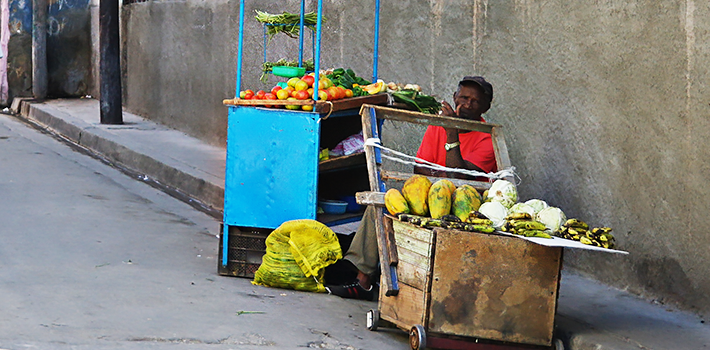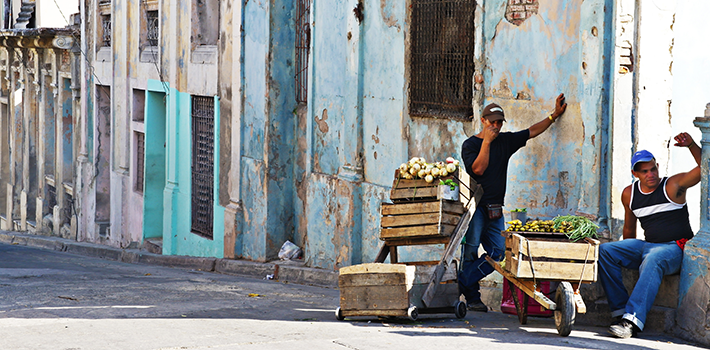EspañolProponents of socialism usually present it under a moral guise. Their primary argument is this: socialism is superior to liberalism because under the former “the pursuit of profit” is punishable. They contrast the “disinterested generosity” that supposedly characterizes collectivism with what they pejoratively call the “selfishness” of private agents that ensues when everyone can pursue their own goals in an environment of freedom.
Those who fervently believe in Socialism are forced to resort to such moralistic premises because the historical evidence is overwhelming when it comes to the superiority of liberalism on all levels. From an economic point of view, in particular, competition in free markets is what assures innovation in products and services so that they increasingly improve in quality and become ever cheaper.
From a human relations point of view, one need only compare the treatment customers receive at a shopping mall with that delivered at any governmental office. This difference is pivotal, since it demonstrates one of the most characteristic features of socialism: the outrageous proliferation of procedures to which the average citizen is forced to submit to.
Disregard for peaceful, harmonious, day-to-day interpersonal relationships is the most striking feature of the reality that “the people” are subject to under socialism. Ergo, society becomes increasingly less humane with the passage of time.

From a political perspective, the defining feature of socialism is violence: the use of force, be it physical or concealed in a legal fashion. Why is that? This system aims to change the very nature of man, and for this reason, socialists continually refer to the “New Man,” which is supposed to be the closest thing to an angel that exists.
Obviously, however, turning a subject into a heavenly being under coercion requires brutal treatment. The film “A Clockwork Orange” by Stanley Kubrick is a good example of what this would mean in practice.
What socialists often call “selfishness” is in fact simply the quest to improves one’s own condition and that of our families. And this can be accomplished in two opposite ways: through persistent and honest work, or living off others.
Liberalism takes the human being as it is. It takes into account that people only act when they consider the situation to be beneficial for themselves. From this perspective, “profit” is the reward for our efforts when they have been well spent. Therefore, the employer “profits” with his activity, but so too does the employee when he chooses to work and receive his salary. It is therefore as unfair and immoral to take away the income generated by an employee as it is to steal the fruits of the entrepreneur’s efforts.
In contrast, when legal barriers close down the available avenues for thriving through personal effort, this healthy impulse is channeled towards perverse activities. Condemning “profit” in business creates an incentive for immoral practices, because instead of aiming to enrich ourselves by offering goods or services appreciated by others in our community, we seek to conquer political power to plunder the rest of the population.

The truth is that socialist rulers destroy their countries as they proclaim the most noble intentions from the rooftops. Consider a couple of examples that prove what we are saying:
Cuba
The Castro brothers have continuously governed Cuba for more than 50 years. When they seized power in 1959, the “Pearl of the Caribbean” held the title as the world’s largest exporter of sugar cane. It produced 5,409,600 tons annually. Currently, it produces about 1,400,000, so it must import sugar. In 1959 it produced 80 percent of the food it consumed, and was the foremost supplier of vegetables to the United States. Today it must buy from abroad 84 percent of the basic goods it needs.
In 1886, slavery was abolished in Cuba. Today, the Castro brothers exploit and steal from Cubans as slave laborers. That means that the state is practically the only employer on the island and fixes wages as it sees fit. The few foreign companies that operate in the island do not pay their employees directly; they pay the salaries to the government, which only pays a small percentage to the workers. The same goes for the doctors that the Castros send to other countries.
Venezuela
Similarly, Hugo Chávez came to power in Venezuela in 1999. As a result, what today is known as Chavismo has governed the country for 15 years. In such a short period, the damage inflicted on that nation has been lethal. This collectivist approach has exacerbated to scandalous levels the problems that already existed, such as crime and corruption. And, simultaneously, it has ruined what was going well, like oil production. During the 1990s, the state-owned oil company Petróleos de Venezuela (PDVSA) and its foreign partners were pumping 3 million barrels per day of oil from Venezuelan deposits.
The country was the third largest producer of the Organization of the Petroleum Exporting Countries (OPEC). PDVSA even planned to gradually increase production towards approximately 8 million barrels per day, which would have put Venezuela at par with the global giants of the oil business, Russia and Saudi Arabia. Today, however, it produces approximately 2.4 million daily barrels — 25 percent less than when Chávez came to power. In 1999, Venezuela was exporting petrol; nowadays it must import it from the United States.
The most cynical and disgusting element of all is that while these characters condemn “profit,” they, their families, and their acolytes become rich through filthy means. Forbes magazine, which every year publishes a list of the richest rulers in the world, gave Fidel Castro seventh place, with an estimated fortune of US$900 million. And the mansions of the most prominent Chavistas in the United States have nothing to envy relative to those owned by Hollywood stars.
It is not far fetched to to maintain that socialism is a producer of a new man of misery, both in the material and spiritual spheres.
 Versión Español
Versión Español












